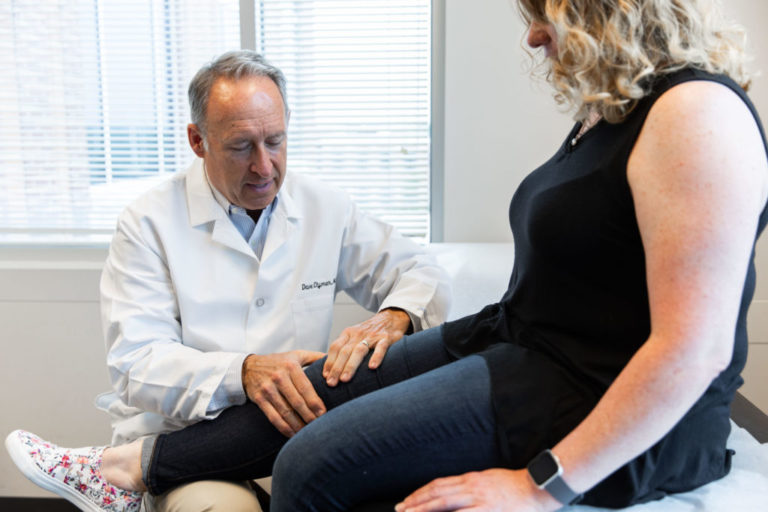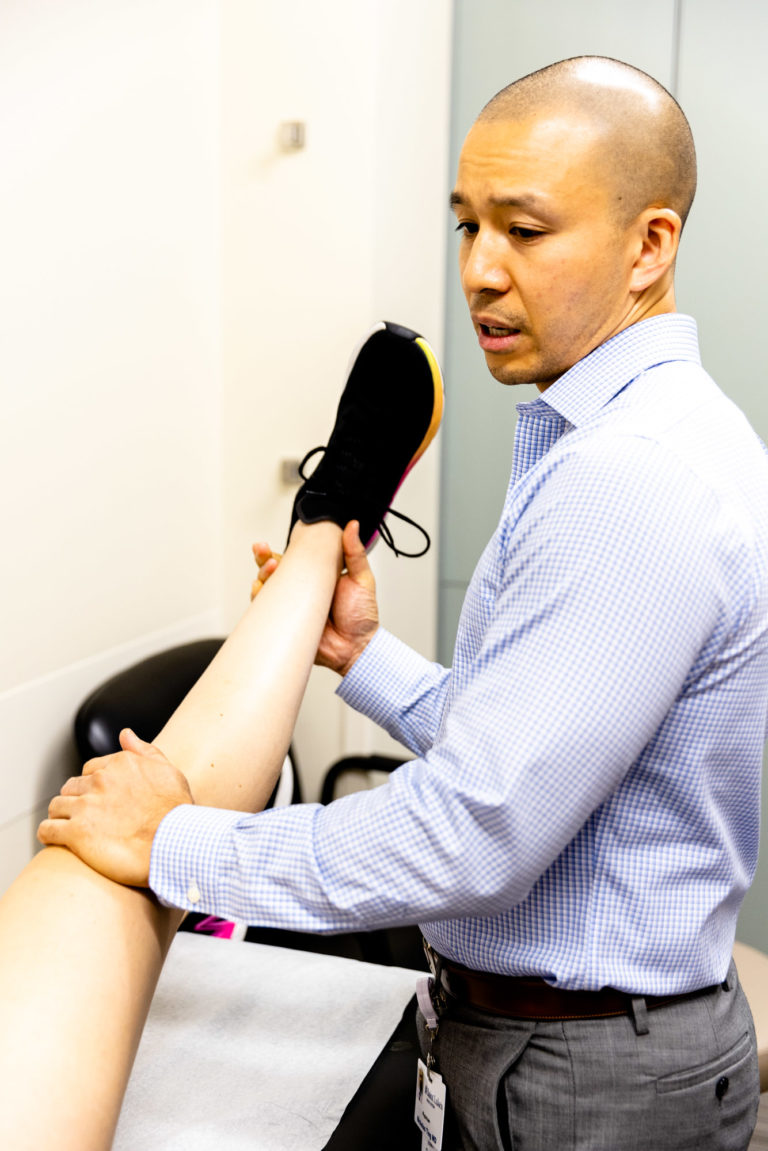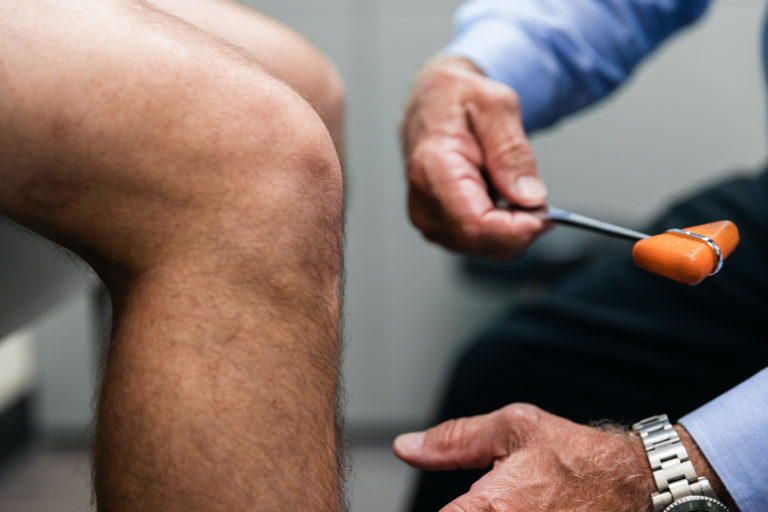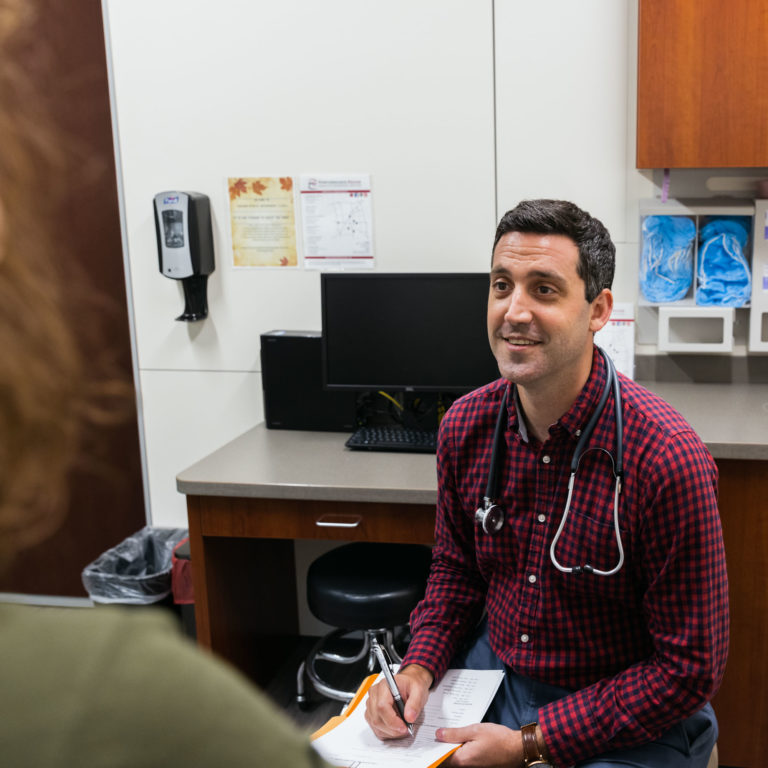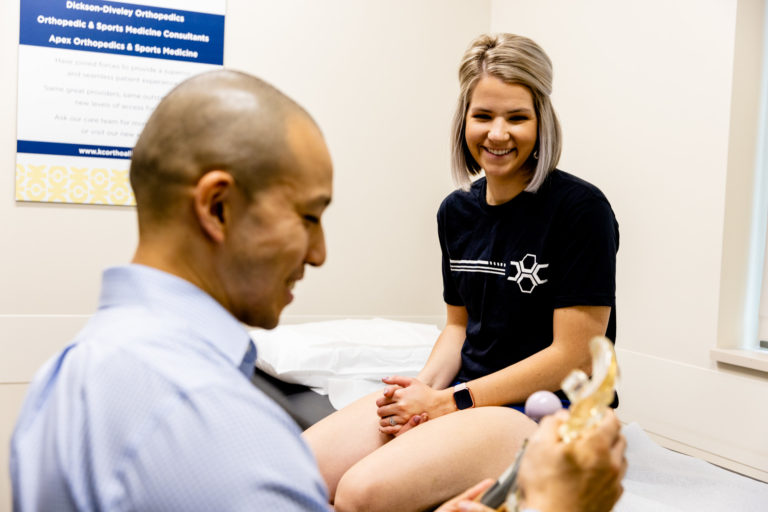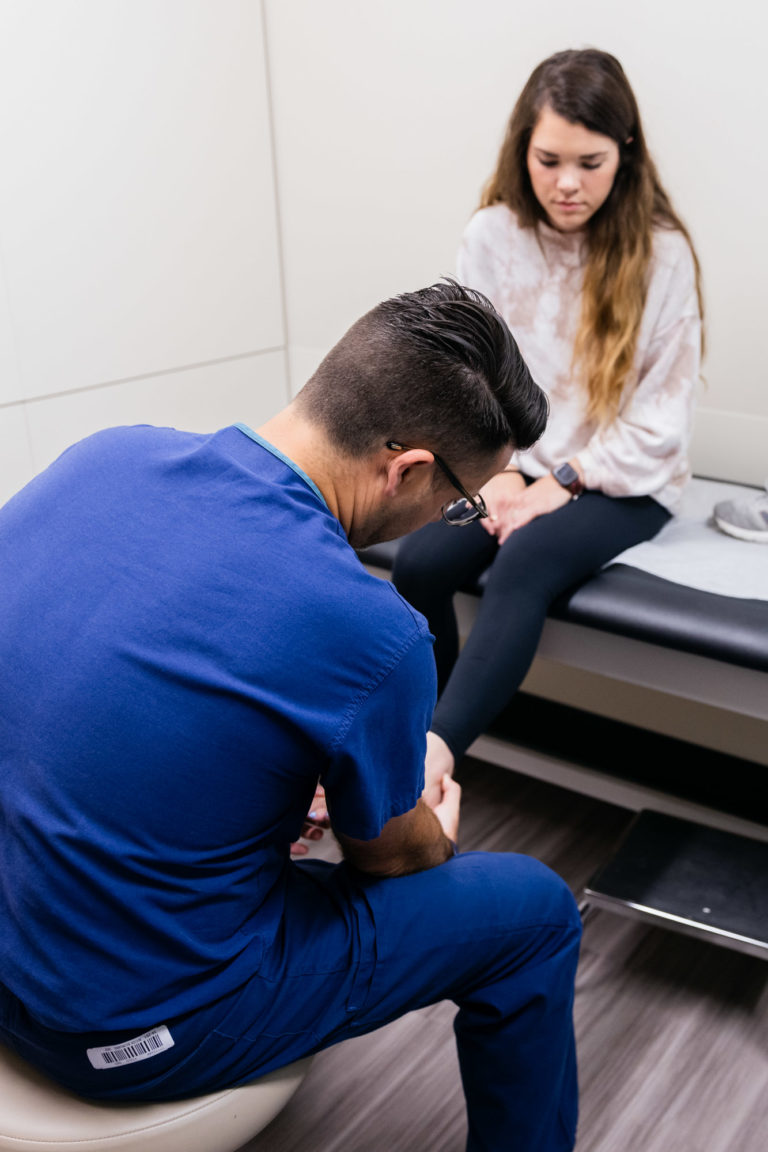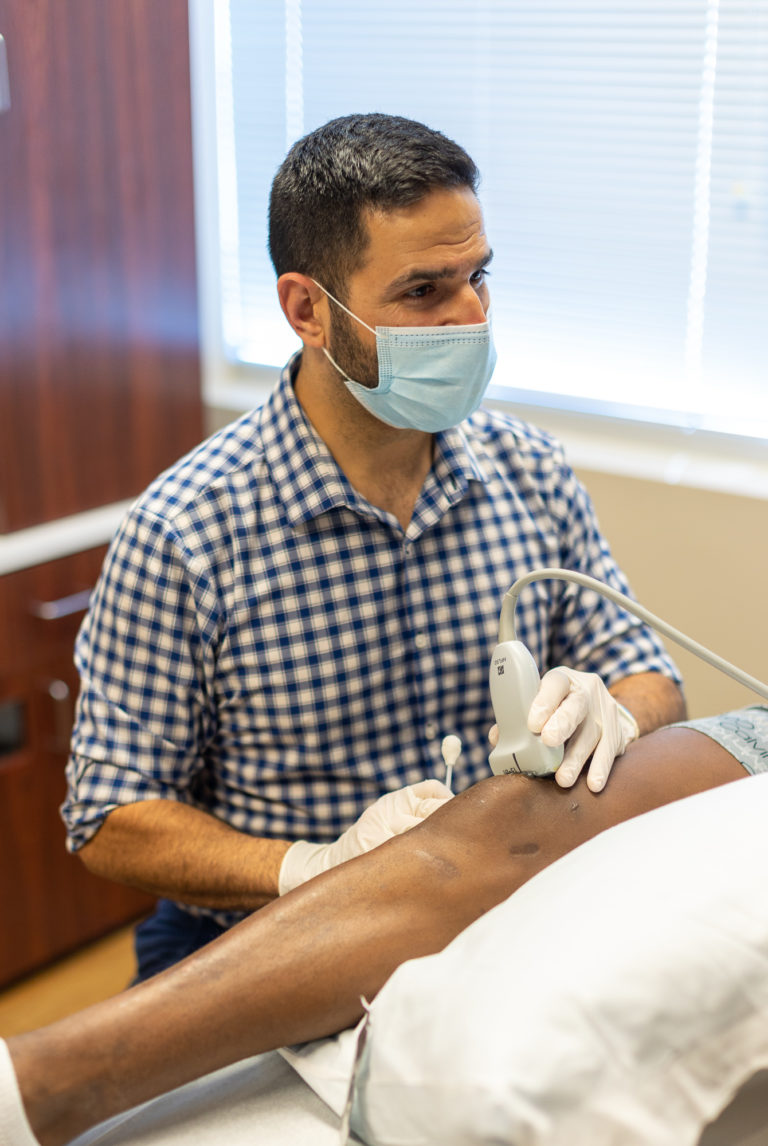ACL Reconstruction in Kansas City
ACL Reconstruction
Getting you off the sidelines and back into the game.
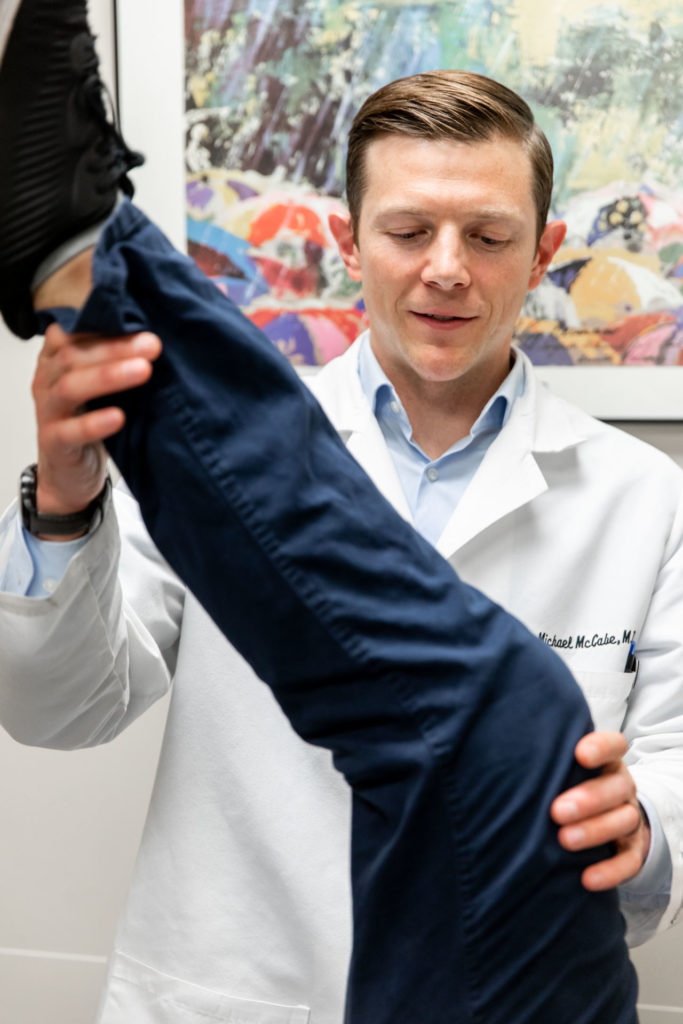
Understanding the Basics Behind ACL Reconstruction
What is ACL Reconstruction?
Whether you’re playing your favorite sport, actively exercising, or just walking in the grocery store, a knee injury can happen to anyone.
There are a variety of knee problems that one can face, whether it’s a joint sprain or strain, afracture, a meniscus tear or disruption of a ligament. One of the most serious injuries is a complete or partial tear of the ACL. Though commonly associated with athletes, ACL injuries can happen to anybody at any time, even when performing normal daily tasks. One wrong step or sudden, forceful turn might result in tearing of this important stabilizing ligament in the knee.
An ACL reconstruction surgery requires the expertise of specially-trained surgeons, like those on our team at Kansas City Orthopedic Alliance. Our expert orthopedic knee physicians perform hundreds of ACL reconstructions each year and have the knowledge and skill you need to help ensure a full recovery.When you visit a specialist at KCOA, we focus on creating a treatment plan based on your specific conditions, symptoms, and recovery goals.
The decision for ACL reconstruction in Kansas City is a decision that typically involves guidance from your primary care doctor and orthopedic physician.
When you choose Kansas City Orthopedic Alliance, one of our highly-trained orthopedic knee specialists will conduct an initial evaluation to better understand your condition. After a complete review of your results, your provider will then discuss whether ACL Reconstruction is the best treatment option for you.
Common signs that may require ACL reconstruction include:
- A loud pop from your knee
- The feeling of a “popping” sensation in the knee
- Severe pain
- Rapid swelling
- Loss of function
- Loss of range of motion
- Instability with bearing weight
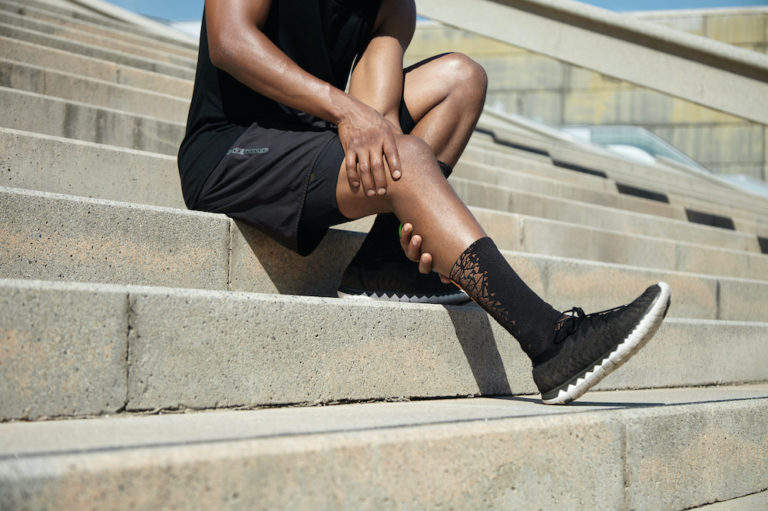
Kansas City Orthopedic Alliance ACL Injuries Assessment
Assessing the Injury
Determining the proper treatment process for ACL injuries starts with an assessment from one of our experienced providers.
You can think of knee pain as a spectrum, with some instances being more severe than others. The KCOA orthopedic specialists always focus on each individual patient and their concerns before creating a treatment plan.
Therefore, during your initial appointment, we will often ask questions such as:
From there, we can decide what treatment option will align best with your needs and lifestyle goals. Once we’ve completed a proper assessment, your provider will often begin with a physical examination to help determine the origin point of your pain. In some cases, advanced testing may be required for a full diagnosis.
- How did your injury occur?
- Did you notice or hear a popping sound at the time of your injury?
- Is there swelling in and around the joint?
- Does your knee feel unstable or like it will give out?
- What activities are you returning to following your recovery?
Examination
X-Ray
Also called radiographs, an X-ray captures a picture of the knee. Orthopedic physicians may order an X-ray to rule out the possibility of a fracture (broken bone), osteoarthritis, or other bone-related conditions.
Magnetic Resonance Imaging (MRI)
MRI captures images of muscles, bones, ligaments, cartilage, and tendons to help provide information other tests can’t detail. During an MRI, you will lie on a table that slides into a tube-shaped scanner. The machine creates a magnetic field around you, using pulsed radio waves to form the MRI images.
Symptoms
Common Signs and Symptoms of ACL Ruptures
With so many different parts working together in your knees, there are many potential causes of pain. And each of those causes has a unique set of symptoms.
ACL tears and injuries are commonly associated with athletic activities. Sudden action and changes of motion (such as planting, running, jumping, and landing) can lead to a tear of the ligament. Though you can treat many knee issues with conservative measures and non-surgical options, including an ACL tear, an ACL reconstruction surgery may be necessary if the patient’s knee doesn’t respond to these treatments.
Causes
Causes of Knee Pain
The body has different kinds of joints, and they all face different challenges. The severity of your knee and leg pain can vary based on a number of factors, including the location and the source of the issue.
Many partial or complete ACL tears are non-contact injuries that stem from this sudden twist or rotational force. Although most common in athletics, these types of injuries can happen during normal, everyday motions, such as walking, squatting or bending the knee while twisting.
Treatment Alternatives
Non-Surgical Treatment
In most cases, surgery is not the first option for treatment at Kansas City Orthopedic Alliance. If we can treat your knee issues with more conservative treatments, we’ll choose those options. We typically exhaust all non-surgical options prior to recommending surgery. Non-surgical treatments for knee injuries include:
Physical Therapy
A trained therapist will focus on the issue that’s causing the pain or symptoms as well as the deficits that are present as a result of the injury. Stretches, strengthening exercises, manual soft tissue work and modalities like hot and cold therapy may be used to help you recover from a partial or complete ACL tear.
Medications
Your doctor may recommend over-the-counter NSAIDs (Non-steroidal anti-inflammatory drugs, such as Advil) or prescription medications. Especially with NSAIDs, you should always talk to your doctor to ensure they are the right treatment for you.
Regenerative Medicine
Regenerative medicines like stem cell injections or platelet-rich plasma can help nourish worn or damaged tissue. This option works best if you have mild or partial ligament tears in the knee.
F.A.Q.
Frequently Asked Questions
Kansas City Orthopedic Alliance is here to help.
Our care is personal. Our team is knowledgeable. And we’re more available than ever.
With access to board-certified specialists across Kansas City, we have the tools to meet almost every musculoskeletal condition.
Our Locations
Overland Park, Kansas
10777 Nall Ave Suite 300 Overland Park, KS 66211Leawood, Kansas
3651 College Blvd. Leawood, KS 66211Kansas City, Missouri
Saint Luke's Medical Plaza #1 4320 Wornall Rd., Ste. 610 Kansas City, MO 64111Belton, Missouri
Belton Regional Campus 17067 S Outer Rd #301 Belton, MO 64012Blue Springs, Missouri
St. Mary’s Medical Center, Main Entrance 203 NW R.D. Mize Road, Suite 200 Blue Springs, MO 64014Shawnee Mission, Kansas
7450 Kessler St ste. 140 Merriam, KS 66204Prairie Star (Lenexa, Kansas)
Prairie Star 23401 Prairie Star PkwyBldg. B, Ste. 220 Lenexa, KS 66227

